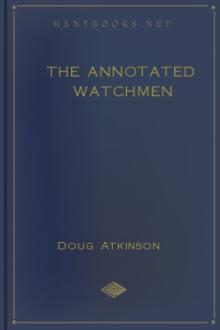Magic Hour by Susan Isaacs (i want to read a book TXT) 📗

- Author: Susan Isaacs
Book online «Magic Hour by Susan Isaacs (i want to read a book TXT) 📗». Author Susan Isaacs
80
MAGIC HOUR / 81
bullet, which had gone through his head; the one that had gone through his heart was unnecessary: Target practice, Hugo said.
The other two guys listened and drank coffee. I briefed everyone on Bonnie’s story on her screenplay versus the opposing Lindsay version—and how there was something not right about Bonnie, something that bothered me. Oh, and that Lindsay’s claim of giving a stellar performance was countered by both Bonnie and Gregory J. and how I thought Starry Night, the twenty million dollars it was costing and, possibly, Lindsay’s reputation might be headed for the crapper.
In other words, what I got from the meeting was not much.
It was then that I thought about my movie man. Jeremy.
Germy.
Jeremy Cottman, the most famous movie critic on TV, was my one rich and famous friend. Okay, so it wasn’t exactly a big-ass buddy friendship. In fact, it had been over twenty years since I’d laid eyes on him.
Jeremy had been a Bridgehampton summer kid, the son of rich but not famous parents. His father had been a stockbroker whose only customer seems to have been himself.
Mr. Cottman played perpetual golf; his skin had the texture of a grilled cheese sandwich. Mrs. Cottman, who called everyone “cutie-pie,” had spent whole summers in a sunbon-net that tied under her chin, clutching a pair of clippers, pruning anything that didn’t run away. Their house, a rambling white wood Victorian, overlooked Mecox Bay.
Rich kids like Jeremy played all summer: swimming in each other’s pools, going to parties at each other’s beach clubs, taking riding lessons in those puff-thigh pants. Kids like me worked. I started out scraping 82 / SUSAN ISAACS
duck shit and sorting potatoes for the farmer who had bought our land. When I was twelve, I graduated to cleaning swimming pools, and later to caddying at one of the local golf clubs.
But in spite of work, summer had always been an enchanted time. It didn’t get dark until late, so we’d grab a bite of supper and rush down to the ball field. We were in the four thousandth inning of a baseball game that had been going on since the summer after third grade: shirts and skins, our shirts getting progressively scruffier as the fifties gave way to the sixties, our skins darkening from the white, stick-out-ribbed chests of nine-year-olds to the broad, tanned, hairy torsos of high school seniors.
It was a strictly Bridgehampton game. Every once in a while, a summer kid would ride past—on an English racing bike. After a few nights of bypasses, he’d brake, knock down his kickstand and get really busy inspecting a tire. Usually we’d ignore him, as in: This is one club you can’t join, fuckface. But if he looked like a terrific jock, we’d be a little less exclusive. Sure, the kid would have to have the balls to grunt the opening “hi.” But then, if he wasn’t too well-dressed, we might ask him if he wanted to hit a few.
Jeremy (I was the one who started calling him Germy) made our team. He was an incredible power hitter, a so-so outfielder, and a cruel and funny mimic. He’d pick some movie star or a baseball player and have them say terrible things about one of the kids, so it was like being dumped on by Marilyn Monroe or Carl Yastrzemski (the greatest human being Bridgehampton had ever produced, even though he’d played for Boston).
I’d never met anyone like Germy Cottman. To be able to hit those line drives. To have discovered a way to say whatever was on his mind. God, how good MAGIC HOUR / 83
that must feel! We became great summer friends, eventually trusting each other enough to share our most intimate sports fantasies. We were the best of buddies from about the time we were twelve until we went off to college.
Germy went to Brown. I went to Albany State. I looked for him that summer after freshman year, but his mother, clipping roses that were doing something to annoy her, said, Sorry, cutie-pie, Jeremy is in Bologna, learning Italian. I saw him around once or twice after that, but we didn’t have much to say; by then, he was an intellectual, I was a druggie, and neither of us was playing ball anymore.
But every now and then Germy’s name came up around town. I heard he was in graduate school in Chicago for something; he was working on a newspaper in Atlanta; he was working on a newspaper in Los Angeles; he was writing long movie reviews—film criticism, I suppose—for some high-minded magazine.
And then one night on TV: the Germ! I remember lying on my couch, pretty drunk but not totally gone, slugging down a beer, thumbing the remote control. There he was, swiveling back and forth in a big leather chair, legs crossed, telling us folks at home—in his familiar, clothespin-on-the-nose prep school nasality—why Out of Africa was such an overrated movie; then he did a brief, mean, but exceedingly accurate, imitation of Meryl Streep.
Germy was on the map. A celeb. And over the next couple of years, his show actually got better. He wasn’t only negative. Sure, there were still his killer reviews and his snide imitations, but he stopped showing off his intellectual superiority and started displaying his real intelligence. He’d run a film clip in slow motion and explain exactly about how a certain shot was done, or describe precisely why So-and-so 84 / SUSAN ISAACS
was a good editor, or a bad production designer. He knew the players too; he’d report how some internal fight at a studio affected a particular movie.
All America watched Germy: seven-thirty, Friday nights.
And read about him too, in People, Time, Newsweek. I read





Comments (0)